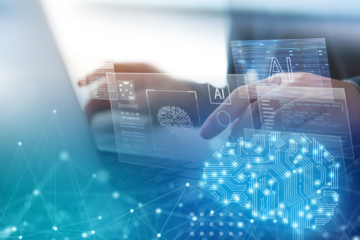Working in the field of big data and AI means that I see the leading edge advances that come with it. It also means routinely getting freaked out when you think too closely about the possibilities and implications of those advances and where they might be taking us.
Here are the 5 most worrying technology trends as we go into 2017:
- Robots and AIs Will Take Our JobsThis isn’t just science fiction, it’s happening now. Manufacturing are the first places we see robots and automation eliminating human jobs, but it’s hard to think of an industry that will be left unaffected as robots and AI become more affordable and widespread. It’s estimated that between 35 and 50 percent of jobs that exist today are at risk of being lost to automation. Repetitive, blue collar type jobs might be first, but even professionals — including paralegals, diagnosticians, and customer service representatives — will be at risk. The problem is that the jobs that will remain will require high levels of education and creativity, and there will be fewer of them to go around. We need to start thinking about what kinds of jobs the rest of the population will be doing.
- Technology will continue to extend lifespans.Combining AI with advances in robotics, medicine and gene-technology means that people could stop dying or at least live a lot longer. That sounds great at first, but more people living well past 100 years would have massive implications for the economy and society at large. The population would continue to grow at an even faster rate, putting more pressure on resources around the world. Retirement and pensions would have to be completely rethought, as would government safety-net programs. Long-term care would take on an entirely new meaning, requiring more facilities, more caregivers, more money to afford it all.

Shutterstock
- Who controls the super intelligence?As technology advances, we run the risk of entering a world of digital feudalism, in which a few technology elites — whether they are individuals or corporations — control our lives and our fate by controlling our data and our world. So far, people can still choose to opt-out, but it’s already inconvenient and uncomfortable. What happens when all transactions are handled digitally, when you can’t do something as simple as buy food, drive a car, or read a book without a digital signature. We are headed towards a future when it may be nearly impossible for the average person to “opt-out.” What happens when a single person, company, or small elite group controls our access to all these things because they control our data?
- The end of capitalismWhile improvements in machine learning, artificial intelligence, big data, and robot automation could mean huge advances in medicine, science, commerce and human understanding, it’s also undeniable that there will be consequences as well. These technological advances represent a significant challenge to capitalism. Together, they are poised to potentially create jobless growth and the paradox of an exponentially growing number of products, manufactured more and more efficiently; but with rising unemployment and underemployment, falling real wages and stagnant living standards. The very best outcome we could hope for in this situation is a new sort of socialism, a sharing economy in which personal ownership decreases or disappears and we all share the bounty around us equally. But getting there may be painful, as it requires either the overthrow or the collapse of the current capitalist system.
- Using our data against us.As I write this, new information is coming to light about Russia’s involvement in hacking the U.S. presidential election, as well as the revelation that more than a billion Yahoo accounts were compromised in 2013, including sensitive personal data. Just a few months ago, hackers were able to use unsecured Internet of Things devices to take down a large chunk of the Internet. As more and more of our data is now stored digitally, we are left more and more vulnerable. Hackers, companies or even governments can use this data against us. The common argument here is that if you’re doing nothing wrong, you have nothing to hide, but this isn’t true when someone could use your health history to deny you a job, your driving history to deny you insurance, your friends and family members to prevent you from getting a job, credit, or even government documents (reports say that China is already doing something like this).
So what’s the answer? How do we face these challenges head on?
From my perspective, I believe the first step is to solve our privacy problems, whether that is driven by government regulation or the technology sector regulating itself. From there, we need to be engaging and encouraging big thinkers to help develop solutions to the more far-reaching problems like job loss and changing economics.
[sOURCE:-Forbes]



